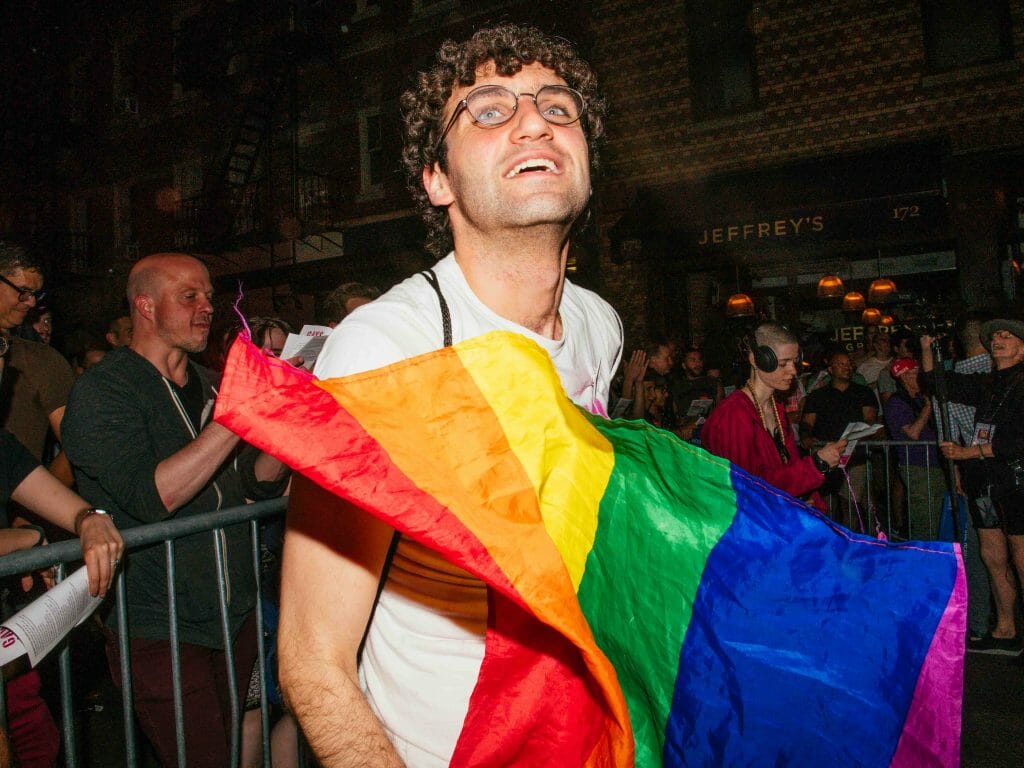The activist and community organizer says social media “is a tool I firmly believe our ancestors would be overjoyed with and thrilled about.”
Beginning this summer and continuing through the election, Instagram has transformed from a place to share sunny vacation pics and snaps of cold brew to an essential resource. Through infographics and slideshows, you can learn about how and where to safely protest, the best and worst places to donate money, and watch live videos as people continue to take to the streets.
Activists have long hoped for social media to spread information in these ways; it can seem like everyone is becoming an activist. This isn’t bad, not by any means, but it does require us to reframe how we’ve historically thought about what activism is, taking on a more dynamic definition, and it makes it challenging to know who is doing other types of activist work beyond simply posting on social media.
Adam Eli, community organizer and author of the book, The New Queer Conscience, says, “A lot of the conversation when it comes to social media activism is like, Is it real activism? Is it not real activism? When really it’s simply a tool that activists and community organizers now have. And it’s a tool that I firmly believe our ancestors would be overjoyed with and thrilled about.”
On this week’s episode of LGBTQ&A, Eli talks about how social media has changed activism, why it’s such a powerful tool, and the negative feelings it can inspire.
“My thought is sort of…unless you’re an activist or an organizer who is doing the work while simultaneously providing the solution that is better than social media, then I don’t really want to hear that. It is simply a tool that we have in our arsenal. We’re in a state of consistent crisis and have been as far as I’m concerned since Pulse. So unless someone else has a bigger and better way of sharing and distributing information and organizing people together, I don’t know what to say.” Eli says and adds, “Oh, I’m all ears. I’m all ears. I’d love to hear it. Cut out Instagram and give me something else that makes more sense, please.”
Listen to the full interview with Lucia on Apple Podcasts, Spotify, or Stitcher.
Why Adam Eli encourages those who attend protests and actions to post about them on social media:
“I’m of the school of thought that posting about protests is good, especially to the younger folks. For example, when Trump was consistently threatening to overturn DACA, if you go to a protest in support of dreamers and you post about it, that means the person with an immigrant parent or who’s an immigrant or has an immigrant loved one, now officially knows that you’re safe. Let’s say you’re a straight ally and you go to Pride and you post about how you were at Pride, the queer people that follow you might feel a little safer around you. And I think that that is activism.
If people don’t want to post, that’s fine. But I also say, when planning a protest or planning an action, whether it be a digital action or in real life action, I very often send out the flyer to people that have large social media followings and I ask them to repost it. I always say, ‘If one in real life person comes, because you posted it to your 600,000 followers, it’s 1000% worth it to make that graphic, 1000% worth it to make that post.’ One, because we need bodies and we need numbers. And two, who knows what that queer kid is going to take from that protest?”
Listen to the full interview with Lucia on Apple Podcasts, Spotify, or Stitcher.
LGBTQ&A is a weekly interview podcast hosted by Jeffrey Masters. Past guests include Alok Vaid-Menon, Pete Buttigieg, Laverne Cox, Lili Reinhart, and Roxane Gay.
Episodes come out every Tuesday.
Follow Adam Eli on Instagram: @AdamEli













